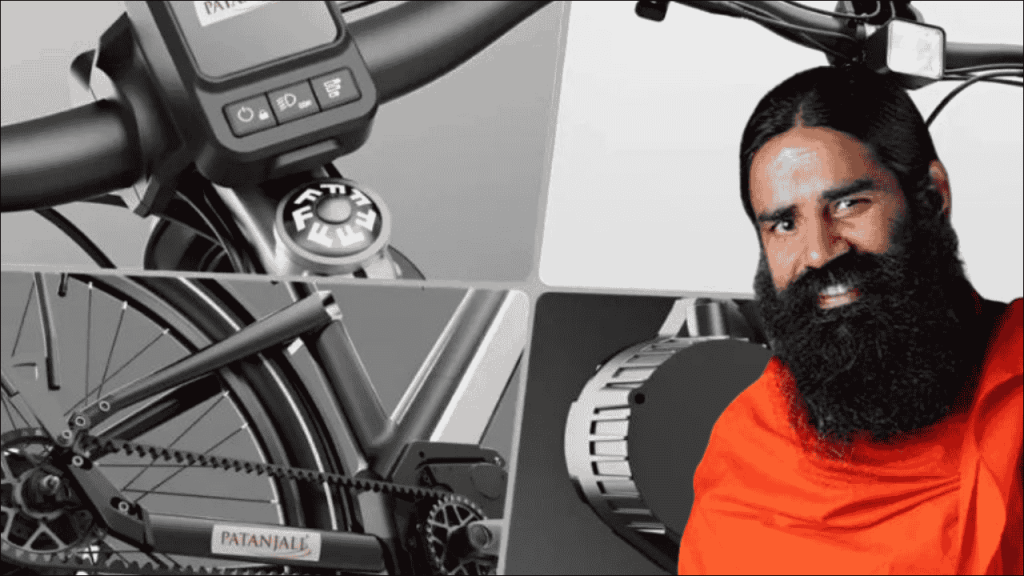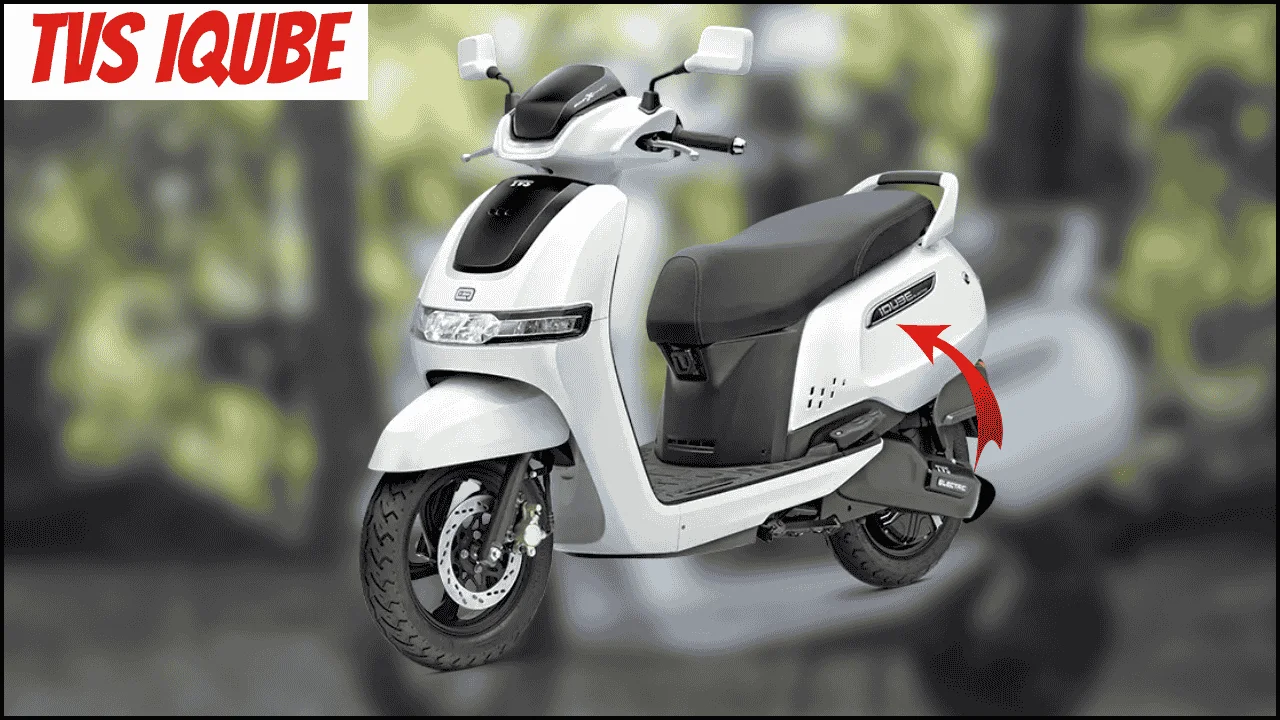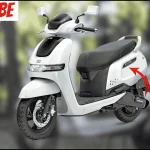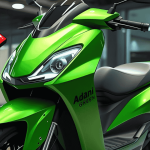
In a groundbreaking move that could transform India’s urban mobility landscape, Patanjali has announced the launch of its electric cycle priced at an unprecedented ₹5,000, offering an impressive 80-kilometer range on a single charge. This announcement by Baba Ramdev during a press conference in Haridwar has sent shockwaves through the electric vehicle industry and positioned Patanjali as a disruptive force in affordable transportation solutions.
Revolutionary Pricing Strategy
The ₹5,000 price point represents a paradigm shift in the electric cycle market, where conventional e-bikes typically cost between ₹20,000 to ₹80,000. This aggressive pricing strategy aligns with Patanjali’s core philosophy of making essential products accessible to the common man, extending their approach from consumer goods to sustainable transportation.
According to Acharya Balkrishna, Managing Director of Patanjali, achieving this price point required innovative cost-cutting strategies including eliminating middlemen through direct-to-consumer sales via Patanjali’s extensive retail network, indigenizing over 95% of components by partnering with local manufacturers, and operating at minimal profit margins for the initial production run of 100,000 units.
Technical Specifications and Features
The Patanjali E-Cycle combines affordability with impressive technical specifications that rival products costing five times more:
| Specification | Details |
|---|---|
| Motor Power | 250W Brushless DC Motor |
| Top Speed | 25 km/h (compliant with Indian regulations) |
| Battery | 8.8Ah/36V Lithium-ion |
| Range | 80 km on single charge |
| Weight | 22 kg |
| Frame Material | Lightweight aluminum alloy |
| Charging Time | 4-6 hours |
| Power Modes | Eco, Standard, Power |
The 250W brushless DC motor provides smooth acceleration up to 25 km/h, keeping the vehicle exempt from registration and licensing requirements under Indian law. The lithium-ion battery pack, despite its compact 8.8Ah capacity, has been optimized using proprietary energy management algorithms to deliver the remarkable 80-kilometer range.
Breakthrough Technology Behind 80KM Range
The 80-kilometer range achievement represents a significant technological breakthrough in the affordable electric vehicle segment. Dr. Pradeep Sharma, the project’s chief engineer, explained that this was accomplished through three key innovations:
Advanced Power Management System: Unlike traditional electric cycles that provide constant power output, Patanjali’s system dynamically adjusts power delivery based on terrain, rider input, and battery condition. This intelligent power distribution results in significantly better energy utilization.
Enhanced Motor Efficiency: The motor incorporates premium neodymium magnets and high-density copper windings, achieving approximately 15% better efficiency compared to conventional motors in this price range.
Adaptive Learning Technology: The system learns rider patterns over time, optimizing power distribution for individual commuting routes. For instance, it conserves energy on flat surfaces while ensuring adequate power assistance on inclines.
Market Comparison and Competitive Analysis
| Brand | Price Range | Typical Range | Key Features |
|---|---|---|---|
| Patanjali E-Cycle | ₹5,000 | 80 km | 250W motor, 3 power modes, USB charging |
| Hero Lectro | ₹25,000-45,000 | 40-60 km | Premium build, multiple variants |
| Firefox E-Bikes | ₹30,000-50,000 | 45-65 km | Advanced features, branded components |
| Avon E-Cycles | ₹20,000-35,000 | 35-55 km | Reliable performance, service network |
| Geekay E-Bikes | ₹18,000-40,000 | 40-50 km | Affordable options, basic features |
Environmental Impact and Sustainability
The environmental implications of Patanjali’s affordable electric cycle extend far beyond individual transportation. With approximately 250 million cyclists in India, even a modest adoption rate could result in substantial carbon emission reductions.
Emission Comparison Analysis:
- Conventional petrol two-wheelers produce about 2.5 kg CO2 per 100 km
- Average annual commuter travels 2,000 km, generating 50 kg CO2
- Patanjali E-Cycle can reduce emissions by 40-60% depending on local electricity sources
- As India’s power grid becomes greener with renewable energy, these cycles will automatically become more environmentally friendly
Manufacturing and Quality Assurance
Patanjali has established a dedicated manufacturing facility in Haridwar with plans to produce 100,000 units in the initial phase. The company has partnered with small-scale manufacturers across Uttarakhand and western Uttar Pradesh to source 95% of components locally, supporting regional economic development.
Quality Control Measures:
- Rigorous testing protocols for all components
- Battery cells sourced from certified domestic recycling partners
- Structural integrity testing for the aluminum alloy frame
- Performance validation under various riding conditions
User Experience and Practical Features
Despite the aggressive pricing, Patanjali has not compromised on user experience. The e-cycle includes several practical features designed for Indian riding conditions:
Comfort Features:
- Adjustable handlebars for different rider heights
- Comfortable saddle suitable for daily commuting
- Three distinct power modes (Eco, Standard, Power)
- LCD display showing speed, battery level, and distance traveled
Practical Additions:
- USB charging port for mobile devices
- Traditional pedaling capability without power assistance
- Lightweight design (22 kg) for easy handling and storage
- Weather-resistant components for monsoon conditions
Economic Impact and Accessibility Initiatives
The ₹5,000 price point makes motorized mobility accessible to millions of Indians for whom conventional vehicles remain unaffordable. This represents approximately two weeks of minimum wage in most Indian states, making it achievable for low-income households.
Financing Options:
- Weekly installment plans starting at ₹100
- Trade-in program offering ₹1,000 discount for old bicycles
- Corporate bulk purchase schemes for delivery services
- Student discounts through educational institution partnerships
Market Response and Pre-Orders
The market response has been overwhelmingly positive, with pre-orders exceeding 50,000 units within the first week of announcement. This strong initial demand indicates significant pent-up demand for affordable electric mobility solutions in India.
Target Demographics:
- Daily commuters traveling 15-20 km per day
- Students and young professionals
- Small business owners and delivery personnel
- Rural populations seeking affordable transportation upgrades
Industry Challenges and Skepticism
Despite the excitement surrounding the launch, industry experts have raised concerns about sustainability and quality at this price point. Rakesh Sharma, a senior automotive consultant, questioned whether high-quality electric mobility could be delivered at ₹5,000 without significant compromises.
Key Concerns:
- Long-term durability of components
- After-sales service network adequacy
- Battery replacement costs and availability
- Production capacity to meet demand
- Impact on consumer perception of electric vehicles if quality issues arise
Future Roadmap and Expansion Plans
Patanjali has outlined an ambitious expansion plan for its mobility segment:
| Timeline | Product Launch | Key Features |
|---|---|---|
| 2025 Q3 | E-Cycle (Current) | 80km range, ₹5,000 price |
| 2025 Q4 | Enhanced E-Cycle | 100km range, additional features |
| 2026 Q2 | Electric Scooter | Sub-₹40,000 pricing, commercial use |
| 2026 Q4 | Four-wheeler EV | Commercial applications, last-mile delivery |
Infrastructure Development:
- 500 dedicated service centers across India
- 100 charging stations in urban areas initially
- Battery swapping technology exploration
- Mobile service units for rural areas
Social Impact and Transformation Potential
Beyond being a transportation product, the Patanjali E-Cycle represents a potential catalyst for social transformation. For millions of Indians who walk long distances or depend on overcrowded public transport, this affordable electric mobility solution could:
Economic Opportunities:
- Expand employment radius for daily wage workers
- Enable small business expansion through improved mobility
- Reduce transportation costs for families
- Create new entrepreneurship opportunities in delivery services
Social Benefits:
- Improved access to education and healthcare
- Enhanced quality of life through reduced commute times
- Greater independence for women in conservative communities
- Bridge urban-rural mobility gaps
Technical Innovation and Patent Portfolio
Patanjali’s research and development team has filed multiple patents related to their proprietary energy management system and motor efficiency technologies. The three-year development process involved collaboration with experts from IITs and local technical universities, resulting in several breakthrough innovations.
Key Innovations:
- Dynamic power allocation algorithms
- Battery optimization techniques
- Lightweight frame construction methods
- Integrated smart charging systems
Conclusion
Patanjali’s entry into the electric cycle market with their ₹5,000, 80-kilometer range e-cycle represents a potential game-changer for India’s urban mobility landscape. By combining aggressive pricing with impressive technical specifications, the company has challenged industry norms and made electric mobility accessible to millions of Indians who previously couldn’t afford it.
The success of this venture will depend on Patanjali’s ability to maintain quality standards while scaling production, establish a robust service network, and manage the logistics of serving diverse Indian markets. If successful, this initiative could accelerate India’s transition to sustainable transportation and serve as a model for affordable electric mobility solutions in developing economies worldwide.
The true measure of this product’s success will not just be in sales numbers, but in its ability to transform the daily lives of millions of Indians by providing them with affordable, clean, and efficient transportation. As one early tester noted, “For the first time, I feel technology is actually working for people like me, not just for those who already have plenty.”
Frequently Asked Questions (FAQs)
Q: What is the charging time for the Patanjali E-Cycle?
A: The e-cycle takes approximately 4-6 hours to fully charge from empty using a standard household power outlet.
Q: Does the 80km range apply to all riding conditions?
A: The 80km range is achieved under optimal conditions; actual range may vary based on terrain, rider weight, and power mode usage.
Q: Are there any registration requirements for this e-cycle?
A: No registration or license is required as the 25 km/h top speed falls within Indian regulatory exemptions for low-speed electric vehicles.
Q: What warranty does Patanjali provide for the e-cycle and battery?
A: Patanjali offers a 2-year warranty on the frame and motor, with a 1-year warranty specifically for the battery pack.













